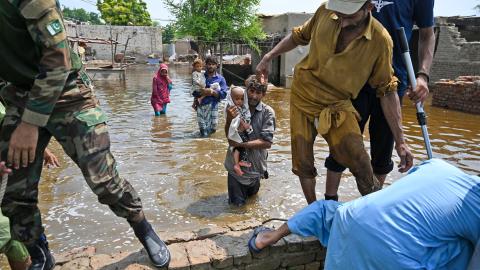
Related Events
04
March 2026
In-Person Event | Hudson Institute
Securing America’s Critical Mineral Supply Chain: A Conversation with Congressman Rob Wittman
Featured Speakers:
Mike Gallagher
Congressman Rob Wittman

04
March 2026
In-Person Event | Hudson Institute
Securing America’s Critical Mineral Supply Chain: A Conversation with Congressman Rob Wittman
Join Distinguished Fellow Mike Gallagher and Congressman Rob Wittman (R-VA) for a discussion on the congressman’s recently introduced Securing Essential and Critical US Resources and Elements (SECURE Minerals) Act and Congress’s role in securing America’s economic security.

Featured Speakers:
Mike Gallagher
Congressman Rob Wittman
06
March 2026
Virtual Event | Online Only
Evidence over Assumptions: A Return to Proper Policy at the Intersection of Antitrust and IP
Featured Speakers:
Kirti Gupta
Hon. Kathleen O’Malley
Urška Petrovčič
Moderator:
Devlin Hartline

06
March 2026
Virtual Event | Online Only
Evidence over Assumptions: A Return to Proper Policy at the Intersection of Antitrust and IP
Join Hudson for an expert panel discussion on the latest policy developments and what an evidence-based approach means for the future of innovation.

Featured Speakers:
Kirti Gupta
Hon. Kathleen O’Malley
Urška Petrovčič
Moderator:
Devlin Hartline
03
March 2026
Past Event
A Strategic Response to Sino-Russian Cooperation: Perspectives from Europe and the Indo-Pacific
Featured Speakers:
Thomas J. Duesterberg
Justyna Szczudlik
Greg Brown
Moderator:
Masashi Murano

03
March 2026
Past Event
Securing Venezuela’s Freedom after Maduro
Featured Speakers:
Leopoldo López
Joel Frushone

03
March 2026
Past Event
Securing Venezuela’s Freedom after Maduro
Please join Venezuelan opposition leader Leopoldo López for a discussion on the future of Venezuelan democracy, the role of civil society in credible political and economic reforms, and the pathway to free and fair elections.

Featured Speakers:
Leopoldo López
Joel Frushone
























